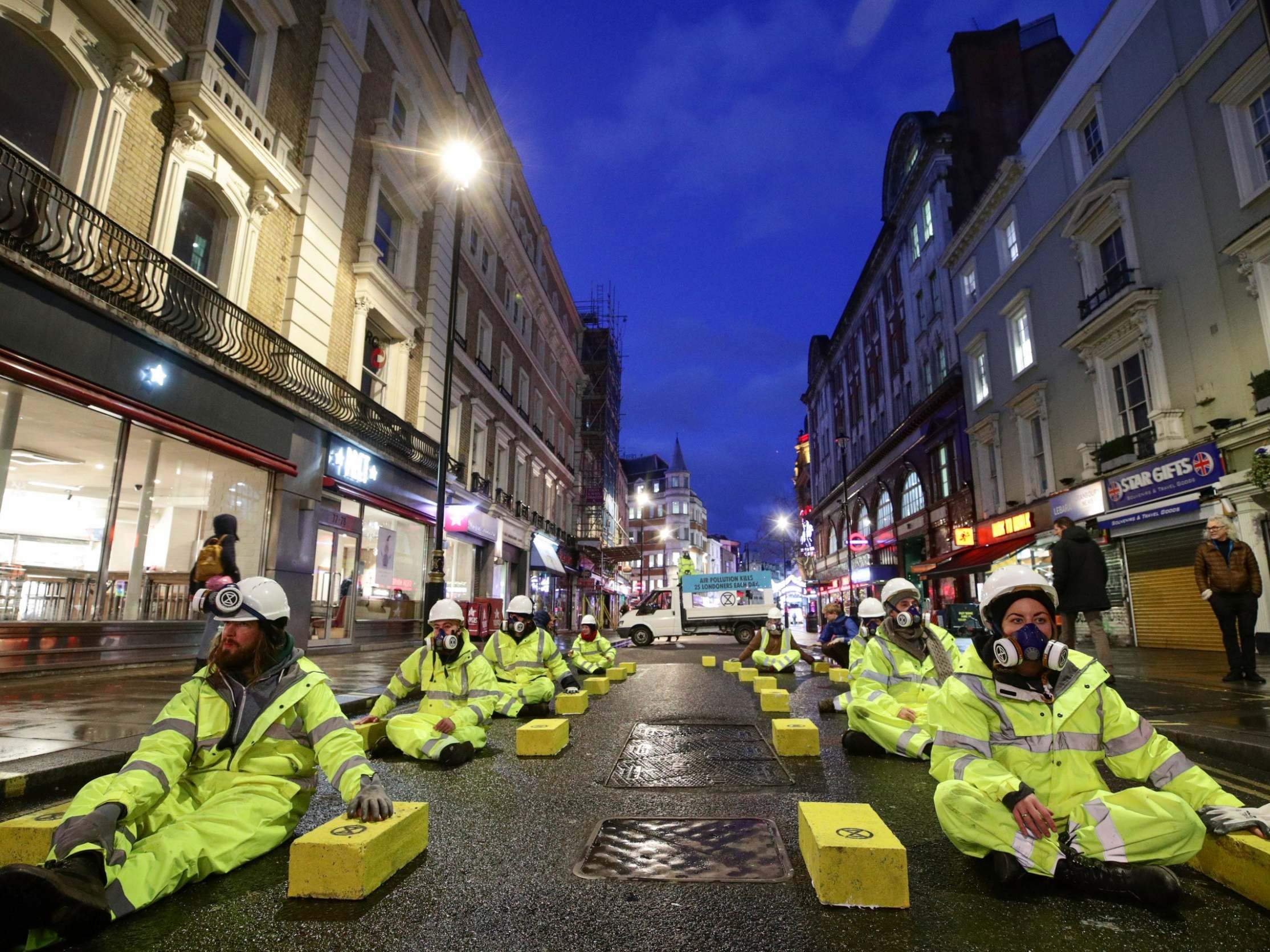Air pollution making NHS winter crisis worse, 175 doctors tell Boris Johnson in new letter
Warning of public health crisis as hospitals and GP surgeries swamped by thousands of cases of asthma, bronchitis and pneumonia

Your support helps us to tell the story
From reproductive rights to climate change to Big Tech, The Independent is on the ground when the story is developing. Whether it's investigating the financials of Elon Musk's pro-Trump PAC or producing our latest documentary, 'The A Word', which shines a light on the American women fighting for reproductive rights, we know how important it is to parse out the facts from the messaging.
At such a critical moment in US history, we need reporters on the ground. Your donation allows us to keep sending journalists to speak to both sides of the story.
The Independent is trusted by Americans across the entire political spectrum. And unlike many other quality news outlets, we choose not to lock Americans out of our reporting and analysis with paywalls. We believe quality journalism should be available to everyone, paid for by those who can afford it.
Your support makes all the difference.Air pollution is making the NHS winter crisis worse, dozens of doctors and health professionals have warned the prime minister in a letter.
The group of 175 medics warned the country is in the grip of a “public health crisis” as hospital wards and GP surgeries are swamped by thousands of cases of asthma, bronchitis and pneumonia believed to have been made worse by air pollution.
In a letter to Boris Johnson, to be published in The Times, the experts said the severe pressures facing A&E departments in winter “are being exacerbated by preventable causes”.
They wrote: “Thousands of children and adults are in hospital or waiting rooms with conditions such as respiratory diseases, bronchitis and pneumonia who would not be there if air pollution was reduced.
“Air pollution isn’t just associated with conditions such as lung cancer or asthma, it can also trigger heart attacks, strokes and has been linked with diabetes and depression.
“The hospitals and surgeries we work in are overwhelmed, particularly in A&E, and the severe pressures in the winter months are being exacerbated by preventable causes. This is a public health crisis.”
The letter urges the prime minister to use the Queen’s Speech to commit more cash as well as setting a legally-binding target to meet World Health Organisation (WHO) guidelines for PM2.5 (particulate matter) pollution by 2030.
One of the signatories of the letter is professor Stephen Holgate, one of three clean air champions appointed by UK Research and Innovation (UKRI) and the Met Office.
Prof Holgate, who is clinical professor of immunopharmacology at the University of Southampton, said: “Air pollution is the public health problem of our time. The government must give this the highest priority for the sake of the country’s health.”

Dr Rob Hughes, senior fellow at the Clean Air Fund, who also signed the letter, said: “As well as properly funding the NHS, it’s critical that the new government addresses the root causes of this crisis, including clearing the toxic air which is sending so many people to already busy emergency departments and GP surgeries.”
Dr Penny Woods, chief executive of the British Lung Foundation, added: “Year after year, we witness A&E wards buckle under the pressure of the influx of patients admitted with respiratory conditions.
“The evidence is clear – dirty air is a major contributing factor to lung conditions and the NHS’s winter workload.”
Data from King’s College London, which includes figures from nine big UK cities, suggests the risk of emergency hospital admissions for pneumonia in children is on average two per cent higher on high pollution days than on lower pollution days.
It also suggests that cutting air pollution by a fifth may result in 4,481 fewer children with acute bronchitis each year in just seven cities.
A government spokesman said: “We are committed to cleaning up our air as well as setting strict new laws on air quality.
“This builds on our £3.5bn plan to improve air quality and reduce harmful emissions, with a Clean Air Strategy, backed by the World Health Organisation as an example for the rest of the world to follow, and our pioneering Clean Air Zones delivering urgent action to clean up our air.
“To deliver a world-class health care system, we are providing the NHS a record cash funding boost worth an extra £33.9bn a year by 2023-24.”
Additional reporting by Press Association.
Subscribe to Independent Premium to bookmark this article
Want to bookmark your favourite articles and stories to read or reference later? Start your Independent Premium subscription today.
Join our commenting forum
Join thought-provoking conversations, follow other Independent readers and see their replies
Comments